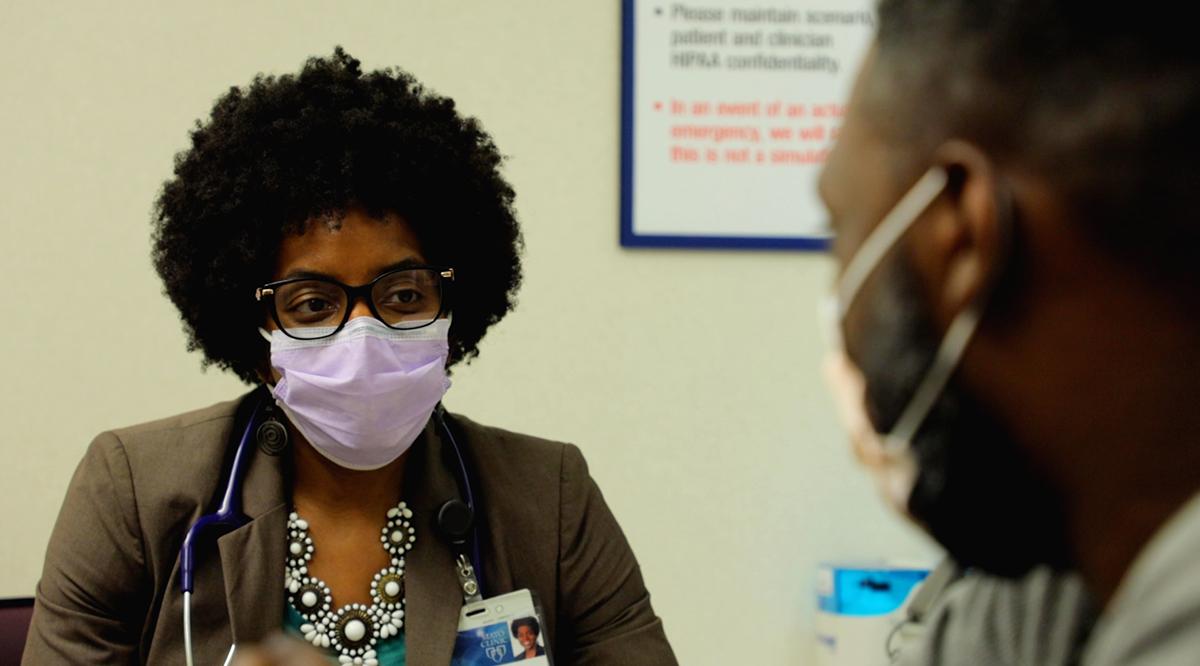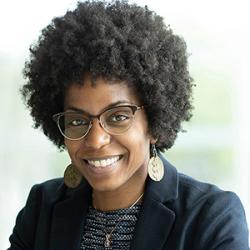When I was 18, I learned that my beloved Aunt Martha was hospitalized. A mother of nine and a devoted cook for her Salvation Army chapter, Aunt Martha had developed pneumonia that was complicated by chronic lung disease. Within days, my aunt’s breathing was increasingly labored, her oxygen levels dropped, and her condition declined even after she was placed on a ventilator. Knowing that she was unlikely to improve, Aunt Martha’s doctors tried to clarify her end-of-life wishes through conversations with her children.
Unfortunately, my cousins had no prior guidance from my aunt and simply requested that the doctors continue all efforts to preserve her life. They did — but saw no improvement. So the care team convened the family to recommend a compassionate removal of my aunt from the ventilator. My cousins were shocked and horrified, and as my mother recalls, they cried out, “You’re just trying to kill her!”
Decades later, I’m a neurologist and palliative care physician, and I find myself leading similar, difficult conversations with families about their loved ones’ preferences for end-of-life care.
In general, we don’t do a good job in this country with advance care planning — conversations about hospice and other wishes for end-of-life care — or with recording those preferences in an advance health care directive. But I noticed early in my career that these discussions often are even more challenging with my Black patients. In fact, only 15% of older Black Americans complete advance directives, compared to 52% of older White Americans. Ultimately, Black Americans tend to elect more aggressive measures than White patients do at the end of life despite limited potential benefit.
Why is that a problem? For one, not discussing one’s preferences for end-of-life care can cause increased suffering from aggressive procedures. Dying in a hospital can rob people of peaceful time with loved ones in a familiar, comfortable environment. And relatives may be left ill-prepared for painful decisions and face costly medical bills for someone who may not have even wanted life-prolonging treatments.
Growing up as the daughter of African American pastors in Tennessee, I spent countless hours in church …. So, when I hear African American families requesting all life-sustaining measures because a miracle just may happen, I get it.
As an African American woman, I certainly understand Black individuals’ reluctance to engage in planning for end-of-life care.
For one, there is a deep distrust of the health care system stemming from the infamous Tuskegee syphilis experiment. And it’s not just about Tuskegee. From gravediggers who exhumed the bones of enslaved people for anatomy lessons to researchers who used Henrietta Lacks’ cells without her consent, injustices have been pervasive for generations.
But many other factors contribute to low rates of end-of-life care planning among Black Americans. At work are also a strong faith in God, a reliance on loved ones for making important decisions, and a deference to elders who may feel uncomfortable discussing such matters. What’s more, Black Americans often have limited knowledge about what ought to be included in conversations about advance care planning.
Physicians and others in health care have the ability — and the obligation — to help address problematic disparities in end-of-life care planning.
Efforts to increase hospice use and advance care planning among African American individuals are not new. They sometimes have focused on diversifying hospice staff, building community partnerships to create culturally acceptable materials, and providing an advance directive coach to facilitate completion of the necessary documents. Such efforts are somewhat successful, but more radical interventions are needed.
Several creative options can help. For example, developing a cohort of advance care planning ambassadors — respected lay leaders who receive special training — could help reduce the discomfort around end-of-life discussions. These ambassadors can speak with community members wherever they meet them, including places like barbershops, grocery stores, or community centers. In addition, motor vehicle bureaus, which already facilitate enrollment in organ donation programs, could offer the opportunity to complete advance directives when getting a driver’s license.
Another option is to train former caregivers to serve as peer mentors to Black patients who have life-limiting illnesses. For example, a peer mentor could describe their feelings of distress and confusion when making end-of-life decisions for a loved one. Such cautionary tales have the power to touch the hearts of older patients in particular, since they often strive to reduce the emotional and financial burden on their families.
While such suggestions may help, any effective steps must address another crucial barrier for many African American individuals: the perception that preparing for the end of one’s life contradicts faith in God. My cousins, for example, strongly believed that if my aunt were kept alive on the ventilator long enough, a miracle might occur.
Growing up as the daughter of African American pastors in Tennessee, I spent countless hours in church, reading my Bible, and attending Sunday School. I heard the stories of how the Shunammite woman’s son came back to life with the aid of the prophet Elisha, how Jesus revived the son of the widow of Nain, and of course, how Jesus himself rose from the dead. So, when I hear African American families requesting all life-sustaining measures because a miracle just may happen, I get it.
How can we better navigate conversations about end-of-life care with African American individuals who have this kind of faith? For one, any conversation should include an acknowledgment of patients’ beliefs. Reframing the idea of a miracle to include something beyond a hoped-for lifesaving cure also can be beneficial. I often share that the miracle could be quality time spent with loved ones, or relief from pain, or fewer trips to the hospital, or a sense of peace. I also note that even if a miracle does occur as it did in the Bible, it does not preclude the need for advance care planning since everyone will die eventually. I like to observe that the Bible says there is victory in death and suggest that prolonging life artificially may delay one’s heavenly reward.
Any provider who doesn’t feel comfortable having religion-based discussions can solicit assistance from a hospital’s chaplain or a patient’s faith leader. In fact, partnering broadly with leaders in the African American faith community can be quite effective. Hearing from a religious leader that advance care planning and faith are not incompatible can be powerful and — since these individuals are often so central in patients’ lives — it can also help heal the distrust in the health care system that often is at play as well.
Much of what providers need is to set aside our task orientation — exploring this pain or checking for that symptom — and instead focus on the whole patient.
I still remember caring for a middle-aged African American man with metastatic lung cancer several years ago. He had elected to be a “full code,” meaning that if his breathing or his heart stopped, he wanted all possible resuscitation efforts. I was consulted as the palliative care physician to ensure that he understood what a full code would entail in his situation.
After talking with the man and his wife for a while, I saw that they were hoping against hope that he could return to some semblance of his “normal life.” As I listened carefully, I could see their guards coming down. And when I rose from my seat to leave, the woman asked, “Dr. Robinson, will you ensure that if he needs to go to the intensive care unit that he will get the same kind of care that everyone else in the hospital gets?” Almost without taking a breath, I said, “Of course.”
As I hugged her and left the room, I couldn’t help thinking of my cousins. I imagine that somewhere in the back of their minds they too were worried that any answer short of “do everything” could have led to the provision of substandard care that Black patients too often have received.
As a palliative care physician, a neurologist, a daughter of pastors, a health services researcher, and an African American woman, I feel uniquely positioned to contribute to efforts to address end-of-life disparities for Black individuals. But providers don’t need to be any of those to have an impact. Much of what providers need is to set aside our task orientation — exploring this pain or checking for that symptom — and instead focus on the whole patient. If we understand the person in the bed, listen carefully, get to know what they value, and help them feel truly seen, then we could move the needle on end-of-life disparities in significant ways.
Editor’s note: The opinions expressed by the author do not necessarily reflect the opinions of the AAMC or its members.

